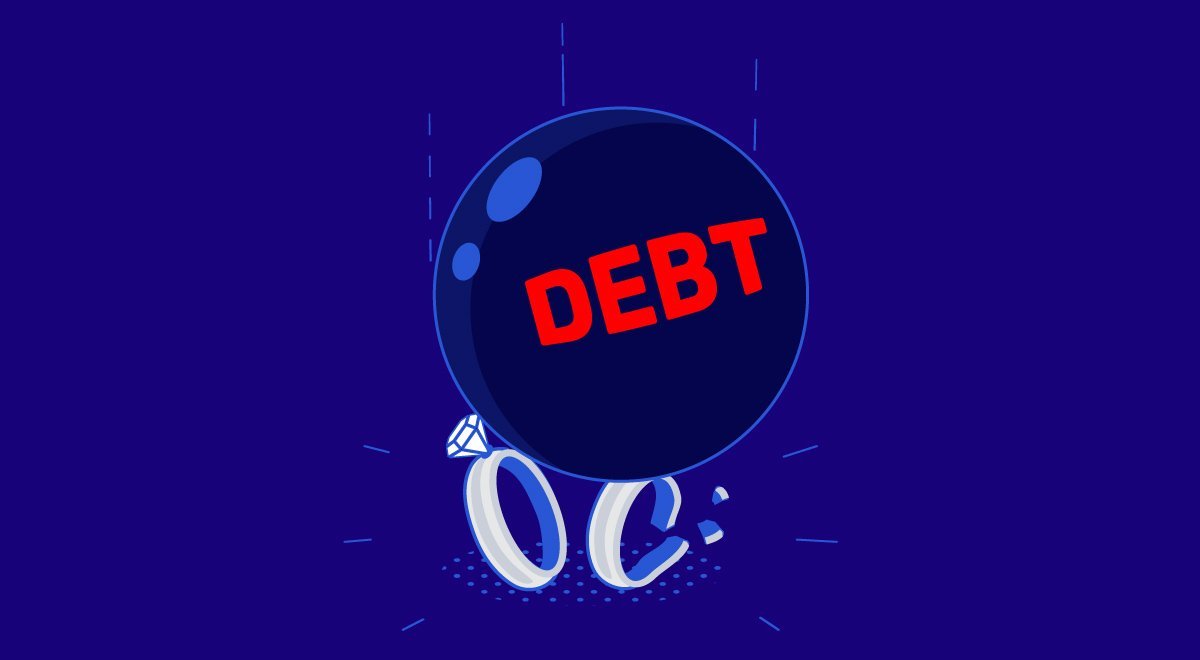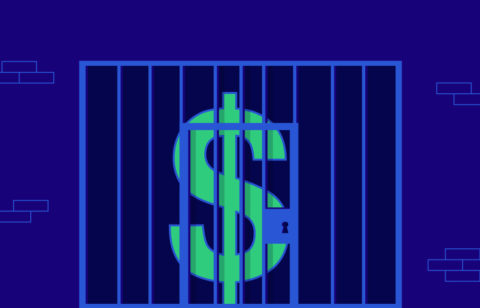Divorce can be a difficult time; one of the biggest challenges facing divorcing couples is deciding how to split up marital debt. Each side may get to walk away sharing the debt burden equally; however, that isn’t always the case. Here are some steps you can take to deal with debts as efficiently as possible while getting divorced, including some tips on how to get debt settlement help with divorce debt.
Divorce Debts: Who Pays for What?
Determining who’s responsible for debts incurred during a marriage is relatively straightforward, in most cases. When it comes to shared debts such as credit cards held in both partners’ names, both parties in the divorce are usually responsible for repaying it. However, if the debt was in the name of just one spouse, then the spouse in question will typically be responsible for repaying the debt. The divorce agreement will typically outline the disbursement of debts, so you’ll want your attorney to negotiate that on your behalf to ensure you aren’t paying for debts you didn’t incur.
For principal loans such as a car, education, business, or mortgage loan, divorcing couples should agree to designate repayment responsibility to the individual who’ll keep the asset after the marriage’s dissolution. If your spouse and you cannot reach an agreement on how the debt should be settled, then you should insist the property be sold and that the proceeds be used to settle the debts before the divorce proceedings begin.
Debt Settlement and Divorce
Debt settlement companies such as National Debt Relief can assist borrowers with negotiating with their creditors to resolve high levels of outstanding debt. In many cases, debt settlement can be an effective option when trying to resolve your marital debts.
There are many reasons to consider debt settlement before finalizing a divorce. For starters, it’s often better to deal with debts prior to divorcing, when both partners may be struggling financially already. Additionally, involving a debt settlement company to deal with your outstanding debt may take a tremendous burden off people who are already going through a difficult situation. Overall, getting a debt settlement company to negotiate down high levels of debt could be a great way to deal with what could be a major financial sticking point in a divorce.
Debt settlement for divorcing couples is often a simple process. For example, consider a divorcing couple with several outstanding credit card balances that are too high to pay off in a regular fashion. Using the debt settlement method, the couple can negotiate repayment terms on those credit card debts. In many cases, the debt settlement specialist may be able to get the total outstanding debt balance reduced significantly, or get lenders to reduce the monthly payments to a much more manageable level. This will take considerable financial stress off both divorcing parties at a highly emotional time while providing some closure for the lenders as well.
Pros and Cons of Seeking Debt Settlement Help with Divorce Debt
There are definitely some advantages and disadvantages to using debt settlement during the divorce process. Here are some of the most important ones to consider.
Pros
- Debt settlement can eliminate the stress of both divorcing parties from having to deal with creditors since the company will do that for you.
- A debt settlement company can reduce the amount of time a divorcing couple has to deal with each other, which can be helpful if they don’t get along well.
Cons
- The divorcing couple will give up control of their debt accounts while the debt settlement company is negotiating on their behalf.
- Banks may not agree to favorable terms, regardless of the effectiveness of the debt settlement company.
- Debt settlement can have a negative impact on people’s credit scores, at least over the short term.
Finding Debt Settlement Help with Divorce Debt
Debt settlement can be a powerful tool for helping couples dispose of debts that built up during their marriage. This process can help provide both people involved a clean start financially as they begin their new lives. It can also lower the stress level a bit during the divorce process since you turn over managing debt issues to someone else and can focus instead on other pressing matters. Therefore, if you’re divorcing and you have high levels of debt, do a little research and see whether the debt settlement process will work well for you.





